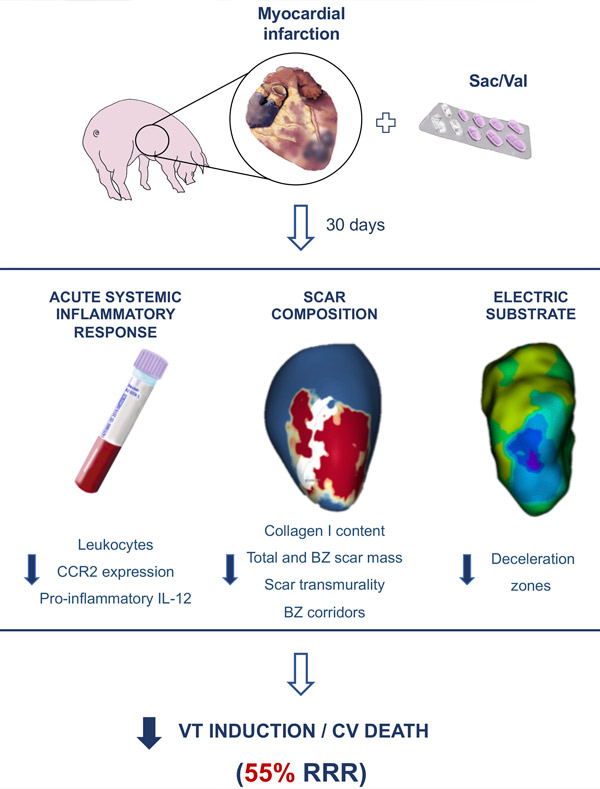
14 May 2024, 22:44
德国特里亚斯普霍尔研究所(IGTP)心脏再生与心力衰竭研究组(ICREC)和德国特里亚斯医院心脏研究所(iCor)的研究人员发现了新药沙库巴曲/缬沙坦在治疗心肌梗死方面的有益作用。
他们的研究最近发表在《循环:心律失常和电生理学》杂志上,为该药物减轻炎症、心脏纤维化和预防心肌梗塞后危险的心律失常的能力提供了新的见解。
心血管疾病,尤其是心肌梗塞,是全球范围内导致死亡的主要原因。心肌梗塞发生后,缺血的受损心肌会发起强烈的炎症反应,清除坏死细胞,并激活胶原瘢痕取代坏死组织。
虽然疤痕组织维持了心脏的结构完整性,但它对心脏的泵血功能没有贡献,并增加了恶性心律失常的风险,从而导致心力衰竭,即心脏无法有效地泵血来满足身体需要的一种疾病。
在此背景下,沙库巴曲/缬沙坦是一种复方药物,在降低心力衰竭患者的再住院率和心血管死亡率方面已显示出良好的效果。虽然该药物在心力衰竭治疗中的作用已逐渐得到充分证实,但其在心肌梗死治疗中的疗效仍未得到充分探索。为此,本研究旨在评估在临床前猪心肌梗死模型中,早期给予沙库巴曲/缬沙坦对心脏炎症、心脏纤维化和致心律失常特性的影响。

该药物在减轻这些影响方面显示出良好的效果,将急性全身炎症反应和致命性心律失常的风险降低了55%,并促进了更健康的疤痕形成。领导这项研究的Felipe Bisbal博士和Carolina Galvez-Monton博士表示:“沙库巴曲/缬沙坦在猪心肌梗死模型中的效果非常令人鼓舞,这表明这种新药可以显著改善心肌梗死患者的预后和生活质量。”
未来的人体临床评估研究将是确定这些发现的可重复性以及沙库巴曲/缬沙坦治疗在心肌梗死情况下的临床益处的关键。

